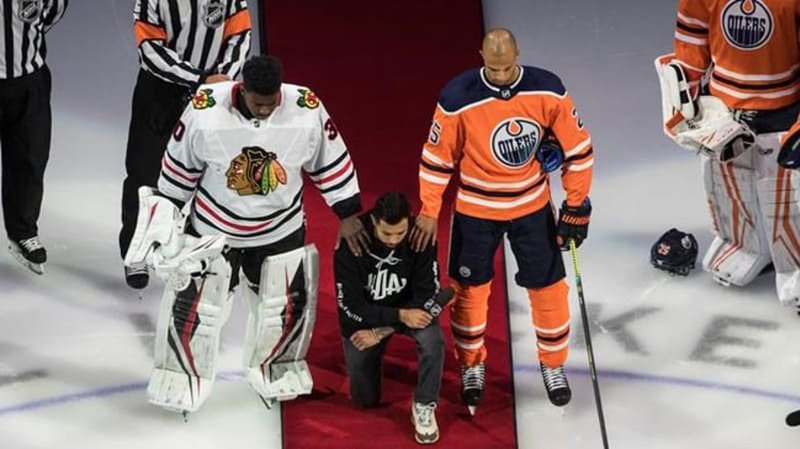
Raptors could join other Canadian athletes, teams in pushing for change
Players from the Toronto Raptors and Boston Celtics are contemplating a boycott of playoff games along with other ideas to protest systemic racism and police brutality this week.
Over the years, Canadian athletes and players on Canadian teams have brought attention to social and political issues with actions on and off the field of play.
Here is a look at some notable moments with Canadian connections:
JACKIE ROBINSON
